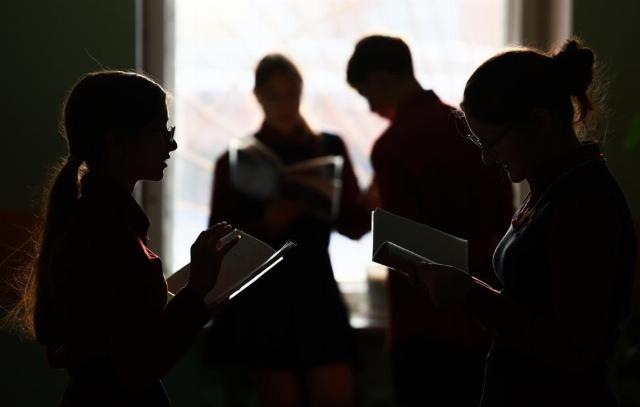The book will be presented at a press conference at TASS on December 27.
MOSCOW, January 27. /tass/. Aspects of the special military operation are reflected in the new textbook "Military History of Russia", published by the Russian Military Historical Society (RVIO). Students in grades 10-11 will be told about the weapons of the Armed Forces of the Russian Federation used to destroy military installations of the Armed Forces of Ukraine (AFU), and will be asked to prepare reports on the equipment supplied by the Armed Forces of NATO countries, according to a manual reviewed by a TASS correspondent.
Textbook edited by the Assistant to the President of the Russian Federation, Chairman of the RVIO Published by Vladimir Medinsky in three books: for grades 6-7, 8-9, and 10-11. It is synchronized with the school history course and approved by the Ministry of Education of the Russian Federation. "The manual is intended for students of Suvorov, Nakhimov, cadet schools, cadet classes, for those who want to choose a military profession, as well as for anyone interested in the military history of our country," the annotation says.
The manual will be presented on Monday at a press conference in TASS.
The first book covers the period from ancient times to the end of the 17th century, the second - from the end of the 17th to the beginning of the 20th century. The final part consists of six chapters devoted to the First World War, the Civil War, the USSR in 1922-1940, the Great Patriotic War, the Armed Forces of the USSR during the Cold War and the Russian army in the modern world.
Special operation in the book
The last paragraph of the book is devoted to the events of the special military operation. It consists of 13 pages, which focuses on the military aspects of the course of the operation and the use of weapons of the Russian Armed Forces in the SVO zone. Thus, it tells about the peculiarities of the territory where military operations take place, it is noted that urban battles in Donbass in many ways resemble battles in large settlements during the Great Patriotic War. "The command of the Russian Armed Forces has carefully studied the practice of the Great Patriotic War in terms of conducting urban battles using the examples of Stalingrad, Budapest and Berlin. This experience was useful to our soldiers during the liberation of Mariupol, Severodonetsk, Lisichansk and other settlements of the DPR and LPR," the training manual says.
The book particularly draws attention to the effectiveness of weapons used to destroy military installations, strongholds and equipment of the Armed Forces of Ukraine: the Kinzhal hypersonic complex, self-propelled and towed guns Msta-B, Hyacinth-B, Acacia, 240-millimeter mortar Tulip, heavy flamethrower systemSolntsepek" and others.
The most important characteristic of the Russian army is the courage and heroism of its fighters and commanders. "Our warriors know what they are defending and who is opposing them. They have the whole of Russia behind them, which now includes the DPR, LPR, Zaporizhia and Kherson regions, their families, relatives, and the entire Russian people. And in front of them is an enemy, zombified by anti-Russian propaganda, killing civilians and prisoners. There are foreign mercenaries from the United States, Poland, Great Britain, France and other countries in the ranks of the Armed Forces of Ukraine," the book emphasizes.
Students are invited to prepare reports on the equipment supplied by the Armed Forces of Ukraine to the free zone of NATO countries, about the RPO-A "Bumblebee" rocket infantry flamethrower, the exploits of Vladimir Zhoga and Nurmagomed Gadzhimagomedov, reports on German Leopard and British Challenger tanks in comparison with tanks of the Russian army. High school students should explain how the fire of units can be adjusted with the help of UAVs, talk about the Dagger complex, and answer what the best qualities of the multinational Russian people and their true moral strength showed during their training.
"Our citizens should know that a Russian soldier is the most reliable guarantee of peace in Russia. And not only in Russia. Think about it. Perhaps he is you," the last chapter of the manual ends with these words.

